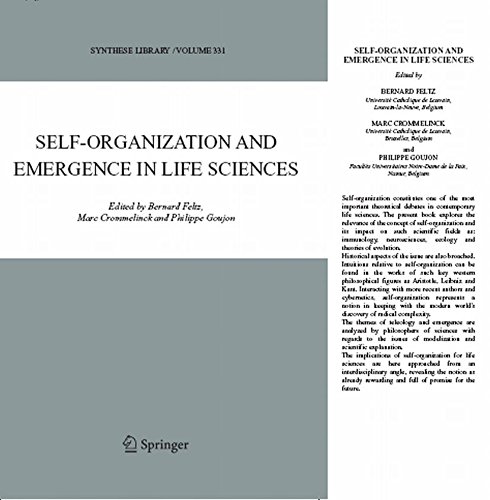

Most ebook files are in PDF format, so you can easily read them using various software such as Foxit Reader or directly on the Google Chrome browser.
Some ebook files are released by publishers in other formats such as .awz, .mobi, .epub, .fb2, etc. You may need to install specific software to read these formats on mobile/PC, such as Calibre.
Please read the tutorial at this link: https://ebookbell.com/faq
We offer FREE conversion to the popular formats you request; however, this may take some time. Therefore, right after payment, please email us, and we will try to provide the service as quickly as possible.
For some exceptional file formats or broken links (if any), please refrain from opening any disputes. Instead, email us first, and we will try to assist within a maximum of 6 hours.
EbookBell Team

5.0
58 reviewsSelf-organization constitutes one of the most important theoretical debates in contemporary life sciences. The present book explores the relevance of the concept of self-organization and its impact on such scientific fields as: immunology, neurosciences, ecology and theories of evolution.
Historical aspects of the issue are also broached. Intuitions relative to self-organization can be found in the works of such key western philosophical figures as Aristotle, Leibniz and Kant. Interacting with more recent authors and cybernetics, self-organization represents a notion in keeping with the modern world's discovery of radical complexity.
The themes of teleology and emergence are analyzed by philosophers of sciences with regards to the issues of modelization and scientific explanation.
The implications of self-organization for life sciences are here approached from an interdisciplinary angle, revealing the notion as already rewarding and full of promise for the future.